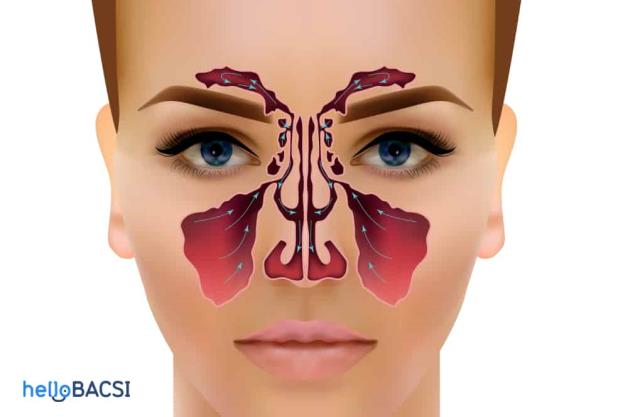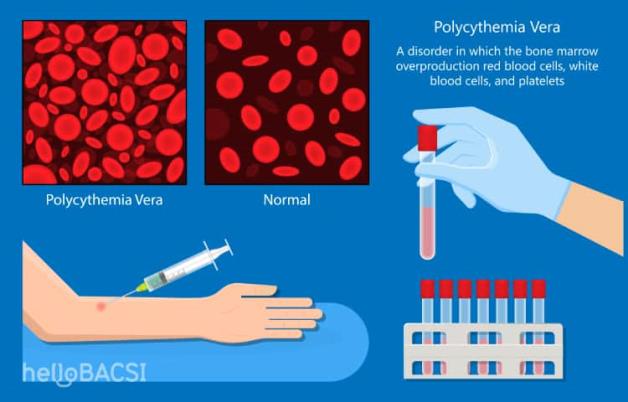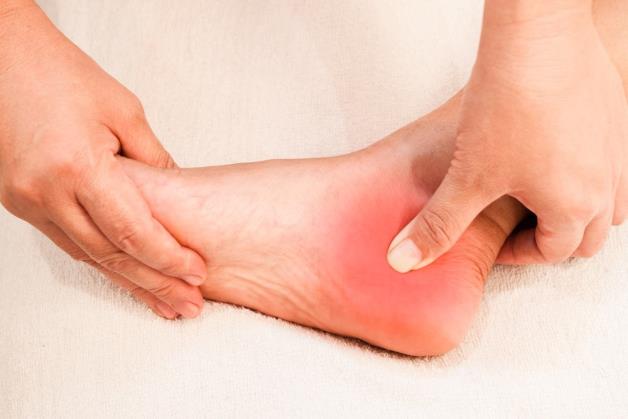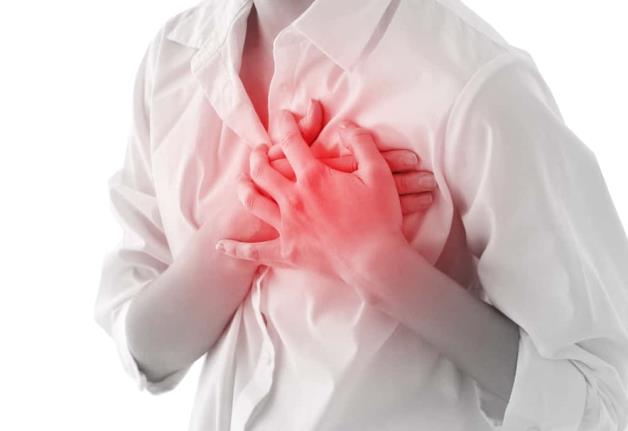Polycythemia vera is a life-threatening blood cancer. The disease progresses slowly, usually for several years, so if detected early and treated in time, the patient will have a chance to live a long life.
What is polycythemia vera?
Polycythemia vera begins in the bone marrow, where new blood cells develop. If you have this disease, your marrow makes too many red blood cells, making the red blood cell density in the blood too thick. Specifically, hemoglobin (Hgb), hematocrit (Hct) or red blood cell (RBC) levels may be increased when measured in a complete blood count (CBC). As a result, you are more likely to have a blood clot, stroke, or heart attack.
Polycythemia vera can occur at any age, and is more common in men than in women. A hemoglobin level greater than 16.5g/dL (grams per deciliter) in women and more than 18.5g/dL in men is a warning of polycythemia vera. In terms of hematocrit, values greater than 48 in women and 52 in men are indicative of polycythemia vera. You'll notice warning signs like dizziness, fatigue, and weakness, but many illnesses cause these symptoms as well. So, only when a blood test shows that you have high red blood cells can you be sure that you have polycythemia vera.
Polycythemia vera can be caused by inherent problems in the production of red blood cells. At that time, the disease will be called "primary polycythemia". If the disease is caused by another underlying medical problem, it is called “secondary polycythemia”. Most cases of polycythemia vera are secondary. Primary polycythemia vera is relatively rare.
It will be difficult if one fine day, you find out you have a cancer. But don't worry leading to pessimism and despair! Each disease has its own characteristics and different treatment directions. So is polycythemia. With the support of your doctor, family and friends, and experience from people who have had polycythemia vera, you will be best able to manage your condition.
Symptoms of polycythemia vera
In the beginning, you may not notice any signs happening to your body. By the time symptoms appear, they are usually:
- Headache
- Dizziness, dizziness, one-to-two
- There are dark or blind spots in vision
- Itching all over, especially during and after a warm bath
- Sweating, especially at night
- The face turns red like a sunburn
- Shortness of breath
- Rapid weight loss
- Tingling or burning pain in hands and feet
- Swollen, painful joints
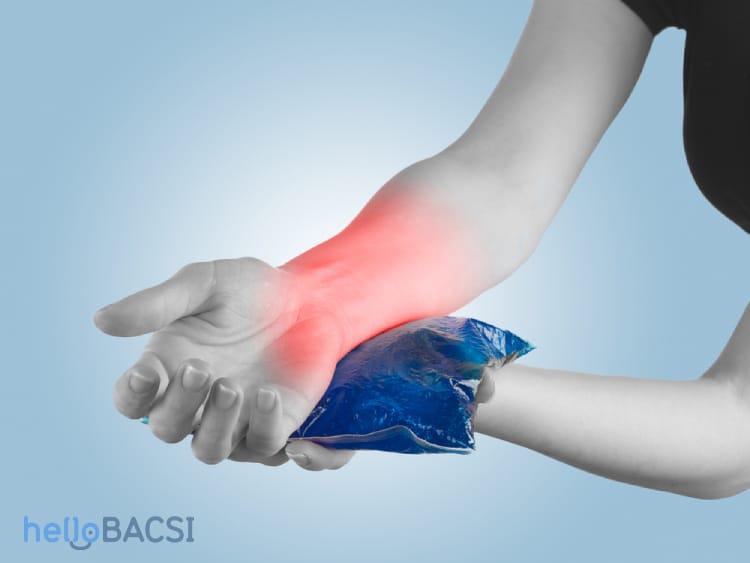
Additionally, you may also feel pressure under your left ribcage. That's where the spleen is, an organ that helps filter blood.
Complications of polycythemia vera
Any disease, if not treated promptly, will also cause complications, and polycythemia vera is no exception. If you treat it properly, the disease will not leave complications such as:
– Fibrosis
- Heart attack
- Deep vein thrombosis
- ischemic stroke
Pulmonary embolism (blood clot in the lungs)
- Increased venous blood pressure of the liver, leading to liver failure
Acute myeloid leukemia: a specific type of blood cancer that affects white blood cells
Hemorrhagic death: usually bleeding from the stomach or other parts of the digestive system
Conversion to blood cancer (eg, leukemia, myelopathy).
How to treat polycythemia vera?
There is no definitive cure for polycythemia vera. However, a timely and correct treatment will help control the disease and prolong the patient's life.
In the early stages of the disease, with no symptoms, you may not need immediate treatment. Your doctor will closely monitor your condition. Then, when they see the need for intervention, the doctor will use medical methods to reduce the amount of red blood cells the body makes, preventing blood clots and other complications.
Common treatments for polycythemia vera are:
Take blood
Your doctor will draw blood from your vein (like you would if you were donating blood), the aim is to reduce the number of blood cells. After this procedure is done, the blood will become thinner and flow more easily. At this point, you feel better as some symptoms, such as headaches and dizziness, ease.
Depending on your medical condition, your doctor will specify the frequency of blood collection. For some people, this is the only treatment they have to follow for years.
Low dose aspirin

A low dose aspirin prescribed by your doctor will keep the platelets from sticking together. This makes you less likely to have a blood clot, making a heart attack or stroke less likely. Most people with polycythemia vera are prescribed low-dose aspirin.
Blood cell lowering drugs
If low-dose aspirin isn't enough for you, your doctor will consider adding hydroxyurea, a drug that lowers blood cell counts and prevents and controls polycythemia vera symptoms.
Another drug, interferon alfa (Intron A), helps the immune system cut down on making blood cells. Meanwhile, ruxolitinib is approved for use in people who have not responded to hydroxyurea or are unfamiliar with its side effects.
If your generalized itching doesn't go away, an antihistamine is a reasonable option.
Prevent polycythemia vera
Many causes of secondary polycythemia vera cannot be prevented. However, some potential precautions are:
- Give up smoking

– Avoid prolonged exposure to carbon monoxide
Reasonable control of conditions such as chronic lung disease, heart disease or sleep apnea
